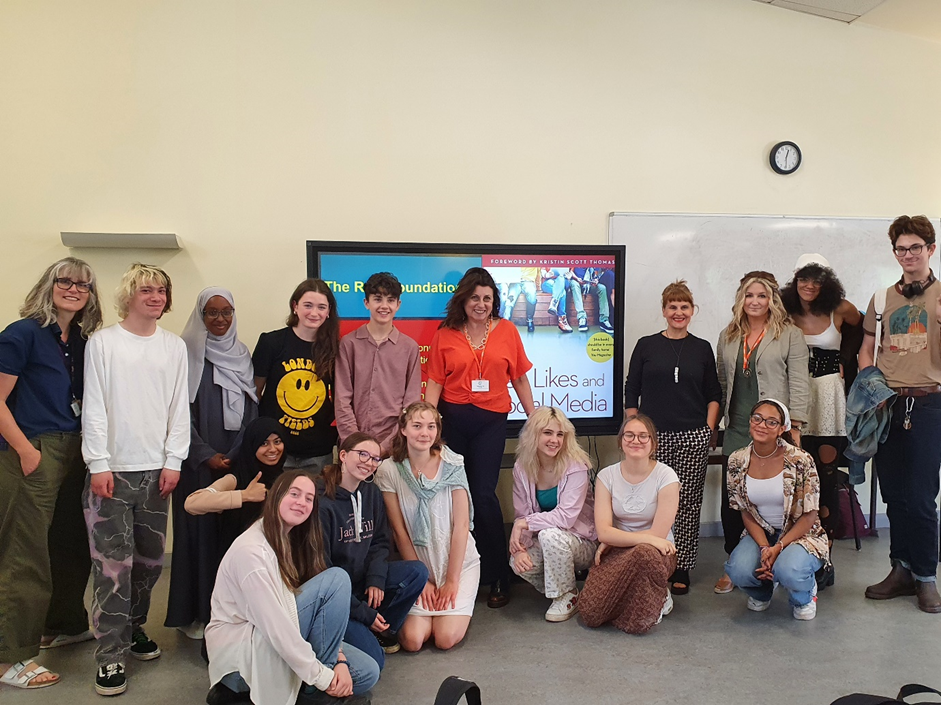Assembly Speaker, 20 June
The Rap Foundation - Allison Havey and PJ Livett
On Monday the 20 of June our two assembly speakers were Allison Havey
and PJ Livett from the RAP Foundation, a charity created by its founders of that gives workshops in a large number of schools on a range of topics, educating students about rape culture, including the laws defining sexual assault, consent, pornography, how social media & pornography influence attitudes, behaviours and body image; the lack of discretion practiced my many young people online, how to manage peer pressure, mental well-being and personal safety.
Allison began the assembly by telling the year 12s about the instagram platform @everyonesinvited that was set up to give people a platform to expose misogynistic attitudes and rape culture through the sharing of testimonies of mostly young women in secondary schools telling their experiences of being victims of sexual abuse and assault. From when it was founded in June 2020, over 54000 testimonies have been uploaded onto the platform.
Furthermore, Allison went on to explain that within rape culture, certain social attitudes and institutional systems often to not recognise sexually abusive behaviour, trivialising it or even expecting it as the norm; this in turn enables sexual assault to be committed more frequently and without consequence. Allison identified toxic masculinity, the notion that one’s ‘manliness’ is defined by physical aggression and dominance, as something that can have a negative impact on male behaviour and their perception of relationships. This in turn may directly correlate with sexual abuse and assault.
In the second half of the assembly, PJ spoke about the importance of everyone understanding what consent is (and that not consenting can happen at any point even during a sexual encounter), and how key communication within sex is, underlining that these are the two key elements to maintaining a healthy relationship with one’s partner and keeping one’s own safety.

PJ shared some painful and eye-opening facts about the involvement of alcohol/drugs in many sexual assault cases; for example, 4/10 women drank alcohol before the incident and 58% of male assailants admit to having been drinking before an assault. The issue of spiking, slipping drugs/alcohol into someone’s food/drink without their permission, was brought to our attention. It is often used as a means of making someone physically vulnerable in order to more easily sexually assault them.
The two speakers then posed questions to the Year 12s about online pornography. Students described it as “unrealistic, objectifying, damaging and predatory”. Allison described it as something which significantly impacts physical relationships as it continues to become even more of our cultural reality. The communication, consent and intimacy of a sexual experience is not expressed, thus, teaching its viewers a misguided version of sex which in turn leads to higher incidents of sexual assault.
The speakers left us with this takeaway: always be an active bystander (challenge the behaviour of someone if you feel it is threatening/harmful to others, do not ignore the situation) and never blame yourself if you’ve been sexually assaulted - call someone you can trust and communicate what has happened to you.
Overall this assembly was very well delivered with engaging questions allowing us to understand what consensual and healthy relationships really are and how to protect ourselves in case of a sexual assault.
Biba,
Head Senior Prefect